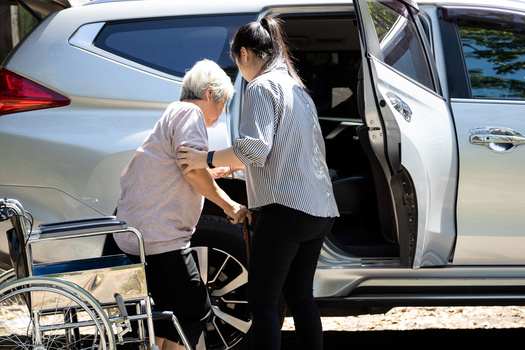Surgery is challenging for many seniors to recover from when they first get home. On top of having slower healing times, seniors often face challenges with taking care of their bodies. Providing your aging loved one with support prevents him or her from having to return to the hospital to treat a secondary condition, such as an infection or fall-related injury. You can start helping your loved one enjoy a safer recovery by adding these ideas to your action plan
Go Shopping
Recovering from surgery often requires special supplies. Wheelchairs, bed rails, and elevated toilet seats sometimes take time to find. Your loved one’s kitchen may need to be stocked with ingredients for healthy meals, and he or she may lack wound dressing supplies at home. Find out what items your loved one’s recovery requires and try to make sure they’re already in place for his or her arrival.
Prepare the Home Environment
Most homes need some modifications to make them safe for a senior’s post-surgical recovery. If your loved one has a two-story home, you may need to set up a recovery room on the ground floor. You’ll also want to clear out obstacles from the main walking paths and create a place for caregivers to rest if they need to stay overnight.
Hiring a professional caregiver is another great way to support your parent’s recovery process. In-home care providers can benefit aging adults in a variety of ways. From cooking nutritious meals to offering timely medication reminders, the dedicated caregivers at Home Care Assistance are available to help your elderly loved one 24 hours a day, 7 days a week.
Arrange for Transportation to Follow-Up Appointments
One of the biggest contributors to rehospitalizations among seniors is a lack of access to follow-up treatment after surgery. Post-surgery recovery instructions often include recommendations to avoid driving for a time. This could create a hardship for seniors who need to get to and from their medical appointments and therapy sessions. Planning for transportation needs now means your loved one won’t have to miss a critical checkup.
Anticipate Potential Limitations
It might be a while before your loved one can prepare his or her own food or bathe without assistance. Ask your loved one’s medical team for a realistic overview of what your loved one should be able to handle independently and what he or she might need help with in the early stages of recovery. This can guide your decisions on requesting help. Some families set up rotating schedules for people to bring meals.
Family caregivers sometimes need a break from their caregiving responsibilities. When they need respite care, Carmichael families can rely on professional caregivers to help their senior loved ones remain safe at home.
Know When to Be Concerned
Seniors sometimes react differently to surgery than younger adults do. For instance, post-surgical delirium is more likely to occur in seniors. Many seniors also have difficulty remembering when and how to take their medication. Fatigue is often more pronounced in seniors after they return home after surgery.
While your loved one’s physician may say some of these symptoms are normal, it’s best to know when to return for a post-surgery exam. In the meantime, having someone oversee important parts of your loved one’s routine can keep these symptoms from interfering with recovery.
Not every senior has the same care needs, which means they don’t all need the same type of senior care. Carmichael families can rely on Home Care Assistance to provide individualized care plans to meet their elderly loved ones’ unique care needs. Our holistic Balanced Care Method was designed to help seniors focus on healthy lifestyle habits such as eating nutritious foods, exercising regularly, and maintaining strong social ties, and our Cognitive Therapeutics Method offers mentally stimulating activities that can stave off cognitive decline and delay the onset of dementia. If your loved one needs professional care, Home Care Assistance is here to help. Call one of our dedicated Care Managers today at (916) 485-4663 to learn about the high quality of our in-home care services.
